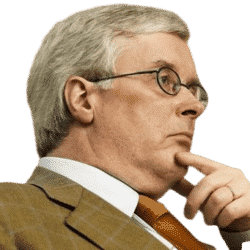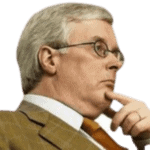The Swedish economist’s life of rich activity straddled theory and policy—and painting.

Assar Lindbeck was a towering figure in Swedish economics and in Swedish political life. An uncommonly impressive public intellectual, he was also a singularly successful academic entrepreneur and leader.
From 1971 onwards, he built up the Institute for International Economic Studies at the University of Stockholm, founded by his predecessor and Nobel laureate, Gunnar Myrdal. He turned it into an economic research centre of international renown, attracting younger generations of Swedish researchers as well as visiting scholars, including myself (1978-96).
Assar was unusual in that his own research attracted international attention mainly after he reached middle age, when many other economists peak. His world-class activity continued apace, without interruptions, until his death at age 90 on August 28th. Shortly before, the European Economic Review, one of Europe’s most prestigious economics journals, accepted yet another paper of his for publication.
Firmly anchored
Assar was also unusual in that his research work was, virtually without exception, firmly anchored in practical policy considerations. His insistence on policy relevance in his academic work, on economic systems, labour markets, the Swedish economy, the welfare state and so on, constituted a firm foundation and framework for his active participation in public debate at home and abroad.
An avid reader of and contributor to newspapers, he had both feet firmly on the ground. Always balanced, considerate and polite in his popular writings, he did not seek controversy, nor did he avoid controversy when required.
Perhaps his biggest public fight was against the Social Democrats’ proposal in the 1970s for wage-earner funds. The proposal originated from LO, the Swedish trade union confederation. Its aim was to grant union representatives direct influence on business investment and thus to create a counterweight to the owners of capital and promote economic democracy. Assar however saw the proposal as a prescription for the collectivisation of corporate ownership and thereby a threat to the pluralism of Swedish society.
In operation from 1983 to 1991, the funds proved short-lived and inconsequential. The episode led Assar to leave the party after 35 years of membership and ended his close friendship with the prime minister, Olof Palme, a collaborator since their student days in Uppsala in the 1950s.
Clear-eyed candour
Another important contribution Assar made to his country was the Lindbeck commission report of 1993. A collection of 113 concrete and daring proposals, this sought to chart Sweden’s recovery from a relative economic decline exacerbated by the financial crisis which struck the region in 1991. The report identified fundamental, systemic problems in Swedish society which had built up over a long time. With clear-eyed candour, it recommended comprehensive economic, political and civic reforms under four headings: stability, efficiency, growth and democracy.
To their credit, the Swedish government and opposition took the criticism directed at them seriously. A significant part of the advice offered in the report was implemented.
Assar was also instrumental in the establishment of the Sveriges Riksbank Prize in Economic Sciences in Memory of Alfred Nobel, also known as the Nobel prize in economics. He served on the prize committee from the outset (1969-94) and as its chair from 1980. It has now been awarded 51 times to 84 laureates.
Exceptionally versatile
Unlike some of his world-renowned Swedish predecessors, such as Myrdal, who for many years served as a high official at the United Nations, and Bertil Ohlin, also a Nobel laureate, who sat in parliament for 32 years, Assar devoted his long and distinguished career exclusively to economics, with unfailing enthusiasm and energy. An exceptionally versatile economist, he applied his varied talents across a wide range of topics, from pure theory to applied policy-oriented and empirical studies. True to his social-democratic upbringing in the far north of Sweden in the 1930s and 1940s, his research work as well as his journalism was driven by a predominant interest in boosting economic and social efficiency through better economic policies and better organisation, thereby elevating ordinary people’s standard of life. He never veered from that goal.
Among Assar´s 26 published books, one became a bestseller and was translated into more than 20 languages. This was The Political Economy of the New Left (1971). He wrote it during 1968-69, when he was visiting professor at Columbia University in New York and then at the University of California at Berkeley as the US expanded its war in Vietnam.
Essentially sympathetic to many of the demands made by the students in revolt, Assar spotted an inconsistency in their arguments: they expressed opposition to both free markets and central planning. Thus, the short book became a study of comparative economic systems, a good social democrat’s defense of a mixed market economy, given the abject failure of central planning in communist countries, clearly visible already then to Assar. Paul Samuelson at MIT, having heard Assar present his case at a seminar, insisted on gaining his permission to send the manuscript to a publisher (Harper and Row), writing a long foreword full of praise.
‘A kind of complementarity’
In my interview with Assar published in Macroeconomic Dynamics in 2005, my final question to him was: ‘Assar, you paint. You have exhibited your paintings in Stockholm on three occasions since 1997. … Is there a connection between your painting and your work as an economist? Or do you inhabit two separate worlds that do not speak to one another?’
Assar answered:
The main connection is a kind of complementarity. Research is a highly specialised activity. Many researchers, as well as other specialists, have a need to broaden their lives by also doing something quite different. In my case, this happens to be painting and music. Otherwise, I do not see much of a relation, or even similarity, between economic research and painting. Visual art operates via suggestion, while research operates via analysis. Some paintings, though not mine, may influence people’s attitudes to various societal phenomena, for instance, by showing the horrors of war (such as in Goya) or misery due to poverty (such as in Kollwitz). But I have never seen any painting that has helped me understand how economic, political or social systems function. To provide such understanding is the task of scientific research, although artistic activities other than visual art occasionally may help us understand how a society functions. Literature is, perhaps, the most obvious example—from the time of the ancient dramas to Dickens and Solzhenitsyn.
Assar was like that. His whole professional life he was an inspiration to younger colleagues and admirers as well as a loyal friend. To ordinary Swedes from all walks of life, his was a voice of reason. He was full of warmth, wisdom and wit, to which his fine autobiography—unfortunately only in Swedish, Ekonomi är att välja (2012)—bears witness.
His voice is now silent but his work—his papers, his books, his paintings—will live on and remind us of him and who he was: ein guter Mensch, as the Germans say, a great economist and good man whom many of us will miss deeply.
Thorvaldur Gylfason is professor emeritus of economics at the University of Iceland and a former member of Iceland´s Constitutional Council.
